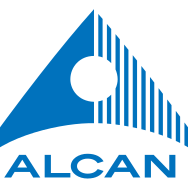
Job Creation Partnership Northwest Territories
At a glance
- No Condition
- Unspecified
- All industries
- Northwest Territories
- Non-profit
- Public or Parapublic institution
- For-profit business
- All revenue ranges
- All organization sizes
- Indigenous Peoples
- Rural or Northern Residents
- Economic, Social and Community Development
- Employment and Training
- Indigenous peoples
- Rural / Remote communities
- Business owners / entrepreneurs
- Academia / students
- All structures
- Local
- Municipal
- Regional
Overview
Access funding for up to 52 weeks to deliver local activities, which either include a work experience component, or guarantee employment at the end of the project.
Activities funded
This grant supports projects that provide unemployed individuals with work experience and training to help them secure long-term employment. Eligible initiatives often include a combination of skills training and guaranteed employment or work experience opportunities.
- Group skills training such as literacy and numeracy programs.
- Upgrading programs for enhancing existing skills.
- Workplace essential skills development initiatives.
- Life skills training programs.
- Employment readiness programs to prepare individuals for the job market.
- Pre-employment training courses tailored to various industries.
- Skill-specific training programs designed to meet local demand.
Eligibility
Eligibility for this grant is determined by specific criteria related to the type of organization and community involvement in the proposed project.
- The applicant must be a board, agency, municipal government, Indigenous organization, non-profit group, business, employer/employee association, or post-secondary institution.
- The project proposal must have a minimum of two community partners.
- Each partner must represent a different community component, such as a Municipality, Indigenous Governments, or an Employer.
Who is eligible?
Eligible applicant organizations include boards, agencies, municipal governments, Indigenous organizations, non-profit groups, businesses, employer/employee associations, and post-secondary institutions.Who is not eligible
Some types of companies are not eligible for this grant. Eligibility criteria exclude for-profit businesses and private enterprises.
- For-profit businesses
- Private enterprises
Eligible expenses
The Job Creation Partnership program supports projects that provide work experience and training for unemployed individuals to enhance their employability. Eligible projects must incorporate group skills training and foster partnerships across different community components.
- Literacy and numeracy training.
- Educational upgrading sessions.
- Workplace essential skills development.
- Life skills workshops.
- Employment readiness programs.
- Pre-employment training courses.
- Skill-specific training programs.
Eligible geographic areas
This grant is available to organizations within the Northwest Territories region of Canada. It is tailored to communities and partners operating within this geographical boundary.
- Organizations located in the Beaufort Delta region.
- Entities operating in the Dehcho region.
- Groups based in the North Slave region.
- Initiatives launched in the Sahtu region.
- Projects within the South Slave - Fort Smith area.
- Programs situated in the South Slave - Hay River area.
Selection criteria
The Job Creation Partnership grant has evaluation and selection criteria that include the following:
- Alignment of the project with the program goals and objectives
- Demonstrated need for the project in the community
- Feasibility and sustainability of the project
- Clear plan for training and skills development
- Involvement of at least two community partners representing different components
How to apply
Contact Regional Service Centre
- Identify the respective Education, Culture and Employment (ECE) Regional Service Centre based on your location.
- Reach out via phone or email to express interest in the Job Creation Partnership program.
- Request an official application form and any specific guidance or requirements needed for submission.
Develop Proposal
- Draft a comprehensive project proposal incorporating key elements such as purpose, benefits, and community impact.
- Ensure inclusion of all relevant costs: wages, overheads, equipment, and other eligible expenses.
- Establish partnerships with at least two community organizations from different sectors (e.g., Municipality, Indigenous Governments).
Submission of Application
- Gather all necessary documents, including the completed application and supporting materials.
- Submit the full application package to the identified ECE Regional Service Centre.
- Confirm receipt of your application with the centre for record-keeping and follow-up purposes.
Additional information
Here are additional relevant details for this grant:
- The program supports projects with both work experience and training elements to secure long-term employment for participants.
- Regional budget availability and approvals determine the funding provided.
- Organizations must partner with a minimum of two community partners representing different community components.
Contacts
Frequently Asked Questions about the Job Creation Partnership Northwest Territories Program
What is the Job Creation Partnership Northwest Territories?
Who is eligible for the Job Creation Partnership Northwest Territories program?
What expenses are eligible under Job Creation Partnership Northwest Territories?
Who can I contact for more information about the Job Creation Partnership Northwest Territories?
Where is the Job Creation Partnership Northwest Territories available?
Is the Job Creation Partnership Northwest Territories a grant, loan, or tax credit?
Who are the financial supporters of the Job Creation Partnership Northwest Territories?
More programs like this

Regional Tariff Response Initiative (RTRI) — Northern Canada
Canadian Northern Economic Development Agency (CanNor)
NGO Stabilization Fund
Government of the Northwest Territories
Employee Training Program
Minister of Industry, Tourism and Investment (NWT)
Wage Subsidy Program
Minister of Industry, Tourism and Investment (NWT)
GNWT — Wage Subsidy Program
Government of the Northwest Territories
Agri-food Funding
Minister of Industry, Tourism and Investment (NWT)
Northwest Territories Tourism Training Fund
Tourism and Parks of Northwest Territories
Northern Food Businesses
Canadian Northern Economic Development Agency (CanNor)
Support for Entrepreneurs and Economic Development (SEED) — Entrepreneur Support
Government of the Northwest Territories